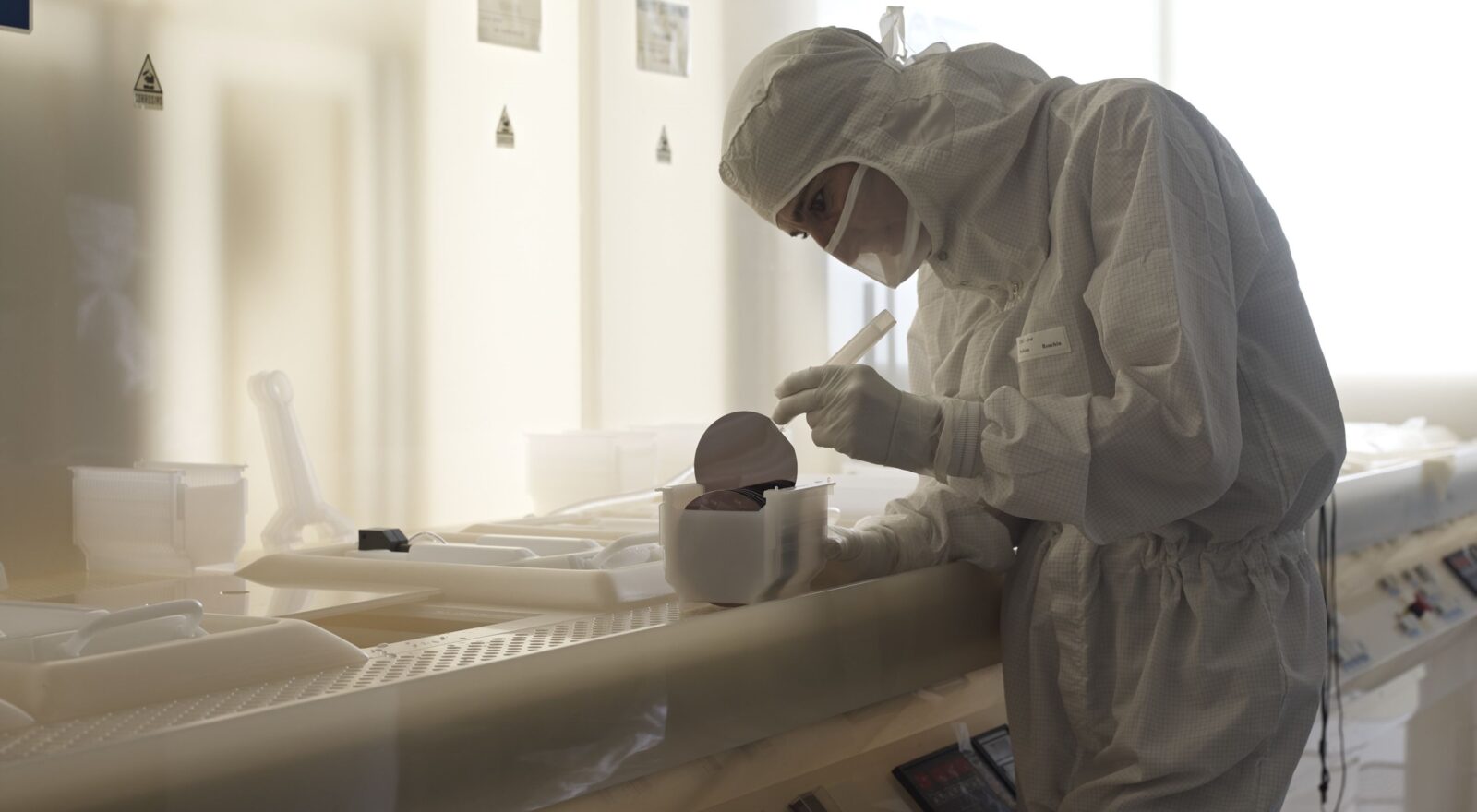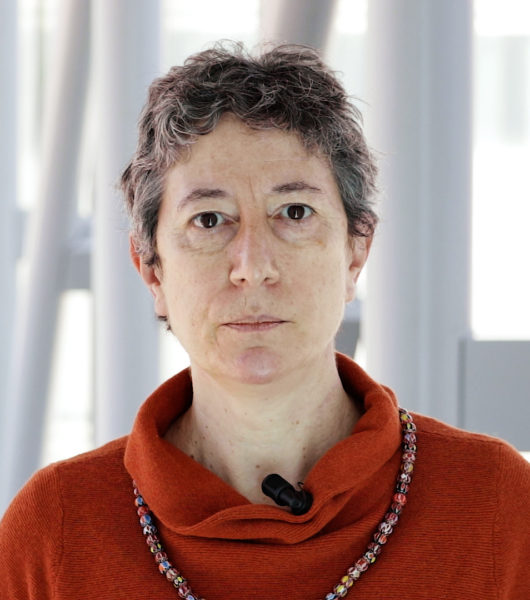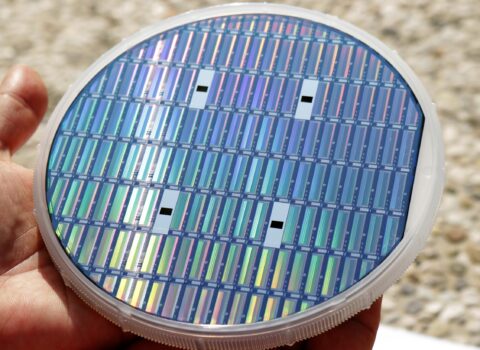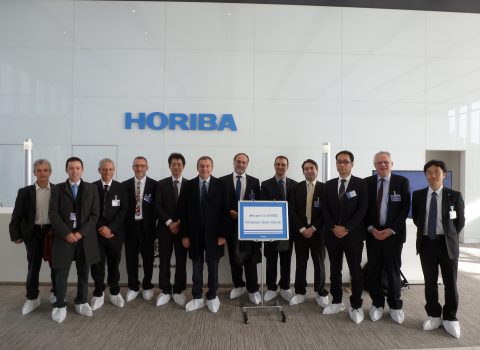
Chips ACT: FBK among key players in Italian Pilot Line for advanced microchips
15 million for silicon carbide research and new laboratories dedicated to semiconductors planned for FBK
The European Chips Joint Undertaking has given a positive assessment for the first four Pilot Lines, including the Italian one led by CNR Catania.
The WBG (Wide Band Gap) Pilot Line project, led by Italy and carried out in collaboration with Finland, Poland, Sweden, Austria, France and Germany, involves the creation of a highly innovative infrastructure specialized in research on new WBG, wide band gap materials, such as silicon carbide and gallium nitride, which are fundamental for the development of devices for applications such as automotive, communications, space and renewables.
The positive assessment of the Italian project, along with those promoted by CEA leti (France), Fraunhofer (Germany) and IMEC (Belgium), positions Italy and its research centers in a small group of leading institutions in the field of microelectronics. The project will be led by the CNR in Catania (Imm), which is recognized as an ideal candidate because of its established research background in the field. The other Italian partners include Fondazione Bruno Kessler, Pavia based Chips.IT Foundation, and the IUNET interuniversity consortium.
FBK was chosen as a research and innovation partner because of its established background in the development of high reliability and quality sensors, as well as the availability of state-of-the-art laboratories.
These Pilot Lines are one of the most important actions of the so-called Chips Act, which aims to recover economic competitiveness and security for Europe in strategic sectors such as semiconductors. FBK was selected due to its very long experience and ability to combine research on these materials with the production of prototypes. – said , head of the FBK Micro and Nano Characterization and Fabrication facility – In particular, this project focuses on new semiconductors, for example silicon carbide and gallium nitride. Why these semiconductors? Because they provide higher efficiency and both electronic and mechanical performance in devices compared to silicon. So here is also an opportunity for FBK to be part of the development of high-efficiency systems that will more easily enable green conversion of our ways of moving or producing energy. In fact, silicon carbide in particular is excellent for preparing components in electric motors, in photovoltaic conversion systems and in other areas, such as high-frequency communications.”
The projected funding for FBK is 15 Million euros that will be used for upgrading the technologies available at its laboratories so as to ensure “state of the art and beyond” support for external users that include other research entities and companies.
In fact, FBK’s Center for Sensors & Devices has three Cleanrooms for semiconductor processing, laboratories with high cleanliness control suitable for processing silicon wafers from which to obtain sensors and MEMS – micro-electromechanical devices.There are many prestigious projects where FBK contributes its devices, from high-energy physics experiments at CERN in Geneva, to missions in space, with components supplied for satellite control and radiation detection, as well as numerous collaborations with both national and international companies.
Specifically in the WBG Pilot Line, the Foundation will be tasked with expanding its micro- and nanofabrication technology by flanking silicon, its own workhorse, with silicon carbide. Silicon carbide is a semiconductor particularly suitable for high-stress applications such as power electronics and high and very high frequency communications. FBK will contribute to the development of silicon carbide sensors and MEMS to be integrated initially into electric vehicle systems and space communication systems, and then pave the way for new possibilities for the fabrication of highly innovative, industrialization-oriented sensors. The project includes European funds of 180 million euros, plus additional government and private funding, bringing the total to about 360 million euros, including 212 million for the Catania plant.
The Pilot Lines are true research forges for advanced microchips, institutionalized by the European Chips Act to ensure that Europe’s technological and competitive edge is maintained. To this end, the European Union is promoting the strengthening and creation of these facilities within the Union through calls for proposals with a total value of 1.67 billion euros, which will double to about 3.3 billion euros with the involvement of funding from member States.
The Pilot Lines will operate as open infrastructures supporting in particular research institutions, universities and companies, to which they will offer services, access and prototypes useful for strengthening market capabilities in Europe in the strategic chip sector.
“This result is particularly prestigious because the selection of partners was based on criteria of excellence and reliability in both science and innovation,” Lorenza Ferrario, FBK Micro and Nano Characterization and Fabrication facility Head added. “FBK‘s participation in the WBG Pilot Line joins the recent “green light” of the IPCEI ME/CNT (IPCEI Microelectronics and Communication Technology) project, which also sees FBK among the partners. This double achievement now allows the Foundation to contribute directly to the development of European strategies in the strategic field of micro and nanotechnology.”




